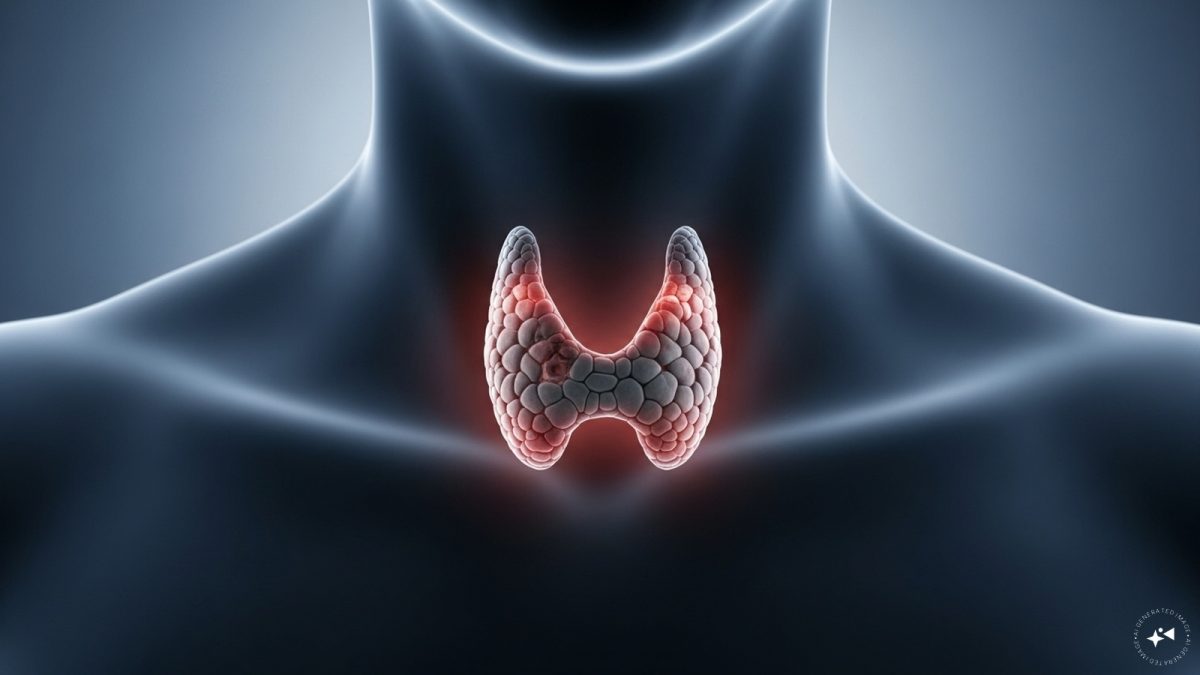Thyroid cancer, often described as a “silent” disease, can grow quietly for years without producing noticeable symptoms. In India and globally, cases are rising particularly among young women, but early detection remains key to excellent outcomes. Experts stress that even simple signs such as a neck lump, hoarseness in the voice, or difficulty swallowing should not be ignored.
Firstpost spoke to Dr. Rebecca Gao, MD, Head and Neck Surgeon at Memorial Sloan Kettering Cancer Center, Dr. Kapil Kumar, Director and Head of Surgical Oncology at Action Cancer Hospital, Delhi and Dr. Chinnababu Sunkavalli, Clinical Director of Surgical Oncology at Yashoda Hospitals (Hyderabad) to understand the warning signs, risk factors and treatment prospects for thyroid cancer.
Early warning signs: what to watch for
“Thyroid cancer is relatively common and often grows without any symptoms,” said Dr. Rebecca Gao. “Sometimes, a tumour is found incidentally during routine imaging or physical exams. But there are physical signs to watch for: a small, painless lump or swelling (nodule) in the front and lower half of your neck, persistent hoarseness, difficulty swallowing or breathing, and ongoing throat pain. Visible swelling or enlarged lymph nodes in the neck always deserve evaluation."
“Thyroid function tests can be normal even in people with cancer, so these physical signs should prompt further testing, usually starting with ultrasound, followed by a needle biopsy if required. Early detection makes treatment far more effective,” she added.
Dr. Kapil Kumar said that painless lumps in the neck, persistent voice changes, swallowing difficulties, neck pain radiating to the ears or jaw, and swollen lymph nodes are common early indicators.
“Most thyroid nodules are benign, but any hard or enlarging lump requires medical evaluation. Screening isn’t recommended for everyone, but those with a family history of thyroid cancer, prior radiation exposure to the head and neck, or genetic conditions should be extra vigilant. Any persistent lump, sudden voice change, or enlarged lymph node should prompt immediate consultation.”
Why thyroid cancer is rising among young women
In India, thyroid cancer is increasingly diagnosed in young women, according to Dr. Chinnababu Sunkavalli.
“Advancements in screening and imaging have led to more diagnoses, but biological and lifestyle factors play a role. Women are more vulnerable during reproductive years due to hormonal factors, including oestrogen, and pregnancy-related thyroid shifts may occasionally increase nodule growth. Autoimmune thyroid conditions like Hashimoto’s thyroiditis, which cause chronic inflammation, also raise risk. Genetics, iodine imbalances, and past radiation exposure are additional factors. Awareness is crucial, persistent neck swelling, voice changes, or swallowing difficulties should be evaluated promptly for early diagnosis and treatment.”
Impact Shorts
More ShortsLifestyle and environmental influences
Dr. Sunkavalli explains that thyroid cancer risk is influenced by a combination of lifestyle, diet, and environmental factors.
“Poor sleep, ongoing stress, and elevated cortisol can disrupt thyroid function, increasing susceptibility to disease. Exposure to air pollution, radiation from imaging tests or X-rays, and even artificial light at night can impact hormone balance and thyroid health. Unhealthy lifestyle choices like poor diet, lack of exercise, and high-stress occupations further weaken natural defences,” he said.
“On the other hand, regular exercise, adequate sleep, a diet rich in calcium, dairy, cruciferous vegetables, and proper iodine intake can help protect thyroid health. While certain risk factors such as heredity or unavoidable exposures cannot be controlled, adopting healthy habits and routine checkups can significantly reduce risk,” he added.
Treatment and prognosis
The outlook for thyroid cancer patients is generally positive, experts say. “Thyroid cancer is one of the most treatable cancers, and outcomes in India now closely mirror global standards,” said Dr. Kapil Kumar. More than 90 percent of cases are papillary and follicular thyroid cancers, which have survival rates exceeding 95 percent when diagnosed early. Even when the disease spreads regionally, survival prospects remain high.
Treatment typically begins with surgery and may be followed by radioactive iodine therapy to reduce recurrence risk. For advanced or resistant cases, targeted therapies such as tyrosine kinase inhibitors have significantly improved patient outcomes.
“Patients requiring complete thyroid removal need lifelong hormone replacement therapy to maintain energy balance and metabolism. But with regular follow-up, most lead healthy, normal lives,” Dr Kumar said, noting that thyroid cancer is often referred to as a “good cancer” because of its excellent long-term prognosis.
The bottom line
Experts agree that thyroid cancer often presents without clear symptoms but early detection is the best safeguard. A painless neck lump, voice changes, persistent throat pain, or enlarged lymph nodes should prompt immediate consultation with a doctor. By combining awareness, healthy lifestyle choices, and timely medical evaluation, patients can significantly improve recovery and long-term survival rates.
)